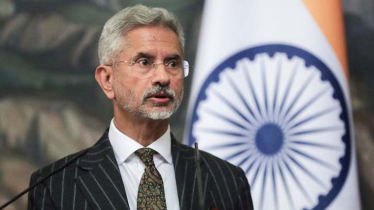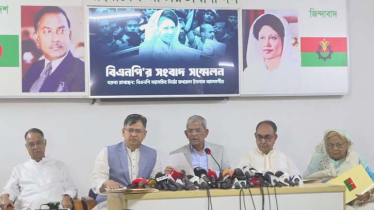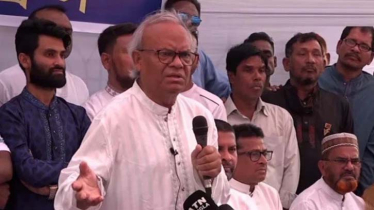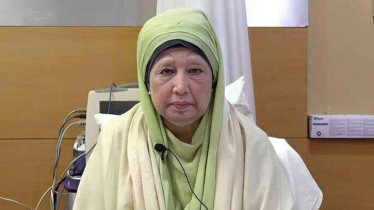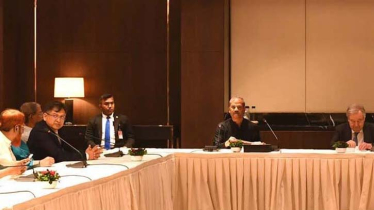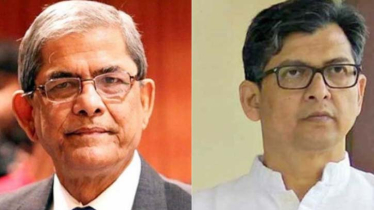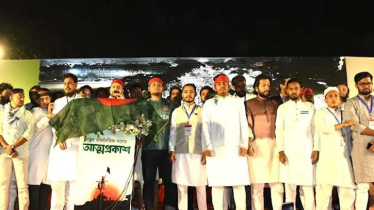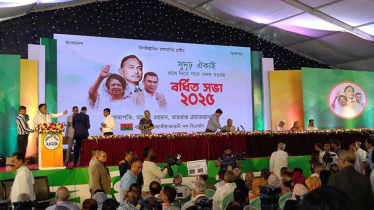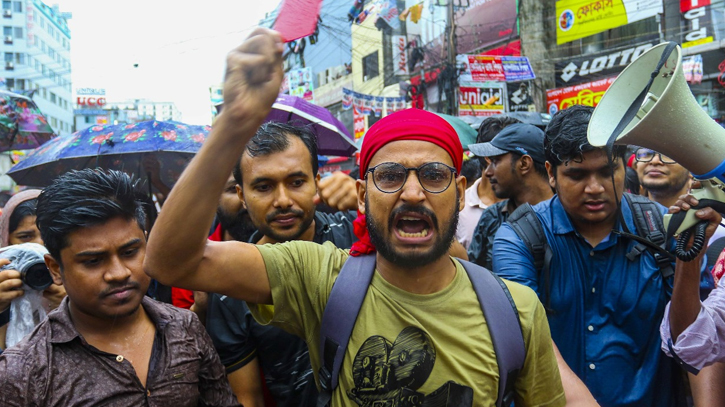
Photo: Messenger
Despite being banned, Bangladesh Jamaat-e-Islami is avoiding hasty decisions or programmes. The high command of the recently banned organisation is emphasising that the government should not be allowed to divert the ongoing student movement. This strategic organisation aims to pressure the government by leveraging its manpower in the student movement.
Several party leaders have said that the government wants to divert the student movement by highlighting the ban on Jamaat and Shibir. They argue that the government's decision is illegal and will focus on legal avenues. Concurrently, they will decide their course of action after assessing the situation.
On August 1, the Ministry of Home Affairs issued a notification banning Jamaat-e-Islami and its student wing, Bangladesh Islami Chhatra Shibir. According to the notification, Jamaat-e-Islami, Chhatra Shibir, and their affiliated organisations were banned under Section 18(1) of the Anti-Terrorism Act by executive order of the government.
The government had accused Jamaat and its student organisation, Islami Chhatra Shibir, of involvement in the violence surrounding the quota reform movement organised under the anti-discrimination students’ movement in Bangladesh last month. In this context, on July 29, 2024, leaders at a meeting of the 14-party alliance led by the Awami League agreed to ban Jamaat-Shibir. Following this decision, the Home Ministry issued the notification on August 1 by executive order.
Subsequently, Jamaat-e-Islami has claimed that the decision to ban Jamaat-e-Islami and Islami Chhatra Shibir, as decided at the 14-party alliance meeting, is illegal. In statements sent to the media on Thursday and Friday, Jamaat's Amir Dr. Shafiqur Rahman and Acting Secretary General ATM Masum said that the 14-party alliance is a political platform and lacks the authority to make decisions about another political party. They argued that Bangladeshi laws and the constitution do not grant this authority. The government, they claimed, is using party-affiliated terrorists and state law enforcement agencies to suppress the student movement. To cover up their actions, they are trying to divert the movement by declaring Jamaat-e-Islami and Bangladesh Islami Chhatra Shibir banned by executive order.
Despite the ban being in place for two days, the party has not announced any specific movement or programme. What is Bangladesh Jamaat-e-Islami’s plan? This question was posed to several party leaders at various levels.
Atiqur Rahman, Secretary of Ramna Thana Jamaat, told The Daily Messenger, “We have not yet received any instructions from the organisation regarding any programme. The high command is giving utmost consideration to ensure that the student movement does not veer off course.”
He also suggested that the party might legally challenge the government's decision.
Fazlul Haque, Education and Literature Secretary of Jashore District Jamaat and former Upazila Vice Chairman, said that the party's high command is extremely cautious about the government's strategy to divert the ongoing movement. He could not provide details on potential protest programmes but indicated that a writ or civil case might be filed in the High Court on behalf of the organisation.
Maulana Azizur Rahman, a member of Jamaat-e-Islami's central working committee, told The Daily Messenger that erasing Jamaat-e-Islami from people’s hearts cannot be achieved simply by wishing it away. The party will decide on future actions after thorough consideration and analysis.
Conversations with central and field-level members of the currently banned organisation reveal that their focus is on the ongoing student movement. They are prioritising the strengthening of the student movement with Jamaat and Chhatra Shibir's manpower strategically over implementing their own programmes, as the issue is non-political.
Messenger/Disha

